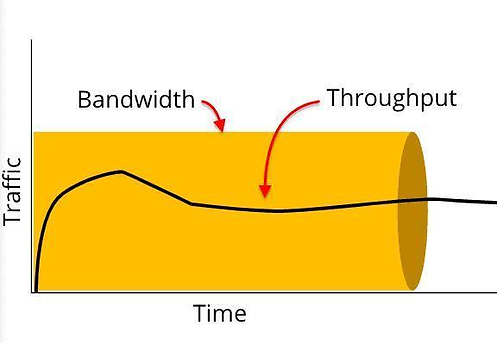
Description of LEDs states
Internet
-
On: internet port connected with internet access
-
Blinking: internet port connected, but no internet access
-
Off: internet port disconnected
LAN
-
On: there are devices connected in the LAN ports
-
Blinking: there are devices transferring data in the LAN ports
-
Off: there aren't devices connected in the LAN ports
Wi-Fi
-
On: wifi 2,4GHZ and 5GHZ power on, but without devices transferring data
-
Blinking: wifi 2,4GHZ and 5GHZ power on and devices transferring data
-
Off: wifi 2,4GHZ and 5GHZ power off
Power Supply
-
Input: 100V-240 V a 50/60 Hz
-
Output: 12V - 1,5 A
-
Max wattage: 12w


Technologies
Technologies(MU-MIMO(Multi-user Multiple Input Multiple Output), Beamforming(signal steering), Band Steering
Hardware
-
Six antennas xas 5Dbi
-
Four Gigabit Ethernet ports – 1 WAN(Wide Area Network) and 3 LAN(Local Area Network) – 10/100/1000 Mbps
-
Chipset Realtek® RTL8197FH + RTL8814BR + RTL8367RB
-
Flash Memory 16MB
-
Memória RAM 128 MB
-
RAM memory: 128MB
-
SO Linux + Bifrost Intelbras
-
Reset button and WPS


Wireless Patterns
Patterns IEEE(Institute of Engineers, Electricians and Electronics)
-
802.11a/b/g/n/ac
-
Pattern a - 54mbps in 5GHZ networks
-
Pattern b: 11mbps in 2.4GHZ networks
-
Pattern g: 54mbps in 2.4GHZ networks
-
Pattern n: 600mbps in 2.4GHZ and 5GHZ networks
-
-
Pattern ac: Operates in 5GHZ frequency offering MU-MIMO and Beamforming
Bandwidth of network wireless
-
2,4 GHz: 20 MHz e 20/40 MHz (with the coexistence enable by default)
-
5GHZ 20 MHz, 20/40 MHz e 20/40/80 MHz (with the coexistence enable by default)
-
* Overall a large canal means most interference, therefore the ideal configuration is between 20 and 40MHZ, for both networks. But if your choice is greater width, and consequently more speed, configure the network 5GHz with the canal width to 80MHZ.

Specifications for Frequency and Power Operation

Operation frequency:
-
2,4 GHz
-
5 GHz
Transmission rate:
-
2,4 GHz: up to 300 Mbps
-
5 GHz: up to1733 Mbps
Operation channels:
-
2,4 GHz: 1-13 (Brazil)
-
5 GHz: 36, 40, 44, 48, 149, 153, 157, 161)
Effective Radiated Power - (E.I.R.P.):
-
2,4 GHz: (ac40 MCS9) 398,1 mW (26 dBm)
-
5 GHz: (ac80 MCS9) 794,3mW (29 dbm)
Reception sensitivity:
-
2,4 GHz -63dBm@802.11ac 40MHz MCS9
-
5 GHz -53dBm@802.11ac 80MHz MCS9
Security
-
Open(enable by default)
-
WPA-PSK, WPA2-PSK e WPA 3-SAE with AES encryption

Operating modes and use cases

Router
-
Use this configuration if you want to create a new network for the devices connected to the router, separate from the main wired network. In this mode, the final speed may be slower, as the device will handle network management tasks. It will act as the default gateway
Access Point
-
Use this configuration if you want the device to function only as an access point for the pre-wired network, providing only the Wi-Fi signal. Most of the network management load will be handled by the main gateway/router. In this mode, it is possible to achieve higher Wi-Fi speed since the device does not handle heavy network management tasks. This is the most recommended mode for most home users.
Repeater
-
Use this configuration if you want the device to retransmit the Wi-Fi signal from an existing network. This is not the best option as there may be a reduction in network speed due to signal loss caused by the distance between the device and the main Wi-Fi router.
-
For devices that are relatively close, it is a good option, but you won’t be able to create a new network; it will only extend the signal of the already existing network selected in the setup. Be sure to check the signal strength of the main network to avoid significant speed loss.